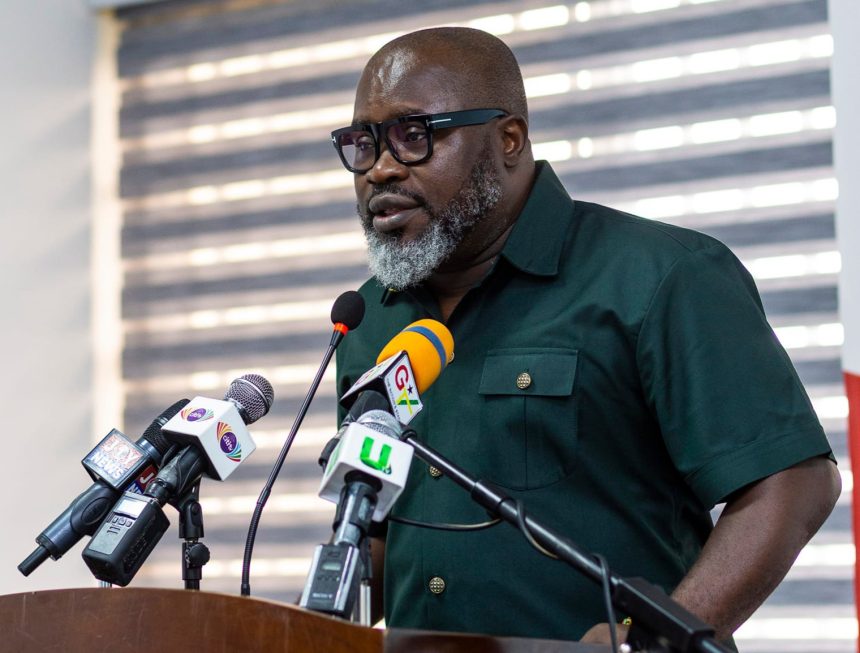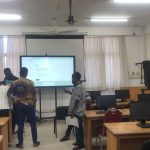The Executive Director of Africa Education Watch (Eduwatch), Mr. Kofi Asare has called on all stakeholders and citizenry to support District Assemblies to live up to the mandate of providing basic schools in various municipalities in Ghana.
This comes in pursuits of advocacy for increased and equitable domestic financing of education, especially basic education.
EduWatch along with ActionAid Ghana, another civil society organisation, have undertaken a study to identify existing tax reforms and their implications on education financing, accountability and equitable access to public education with the aim of making recommendations for systemic efficiency and increased investments in education financing.
During a National Convening meeting at the West Africa Centre for Crop Improvement Auditorium, University of Ghana, Mr. Asare revealed that most District Assemblies are not able to build schools for the poor and vulnerable to adequately benefit from them, hence the need for assistance from stakeholders.
“Per our pre-tertiary education law, it is the mandate of the District Assembly to build schools and provide education infrastructure. The challenge has been that over the years, we’ve seen stagnation in the number of basic schools we’ve built. In many municipalities, we are hardly been building even one school in a year and as the research has pointed out, in Adentan for instance, the past four years, we’ve been able to build only two primary schools. If you have a municipality where over 90% of basic schools belong to the private owners, it limits the ability of the urban poor to have access to basic education which is free.”
“That is why it makes it very relevant for local government stakeholders, education stakeholders and the entire citizenry to have a conversation around innovative ways of supporting District Assemblies to live up to the mandate of providing basic schools so that the poor, urban or rural will be able to access basic education.”
Mr. Kofi Asare further highlighted how the capping of the Ghana Education Trust Fund (GETFund), as a result of the IMF conditionality is affecting educational projects in several municipalities. He however reiterated that the capping of GetFund cannot be undone.
“GETFund was capped since 2017 and its limitation actually place an idea about the implications on stalled projects, ongoing projects and also on projects that never took off. So we’ve seen schools under trees at Adentan community because the project is being financed by GETFund and so it has not been able to see light of day in terms of completion.”
“We have been the number one advocate of the uncapping of GETFund but the reality is that, the capping has been tied to part of the deliverables in the memorandum of the economic and financial policies of the IMF programme so more or less,…the uncapping cannot happen.”
Mr. Asare therefore called for more focus on getting funds from other sectors that about 50 percent of capped GetFund is being allocated to.
“What we must focus more on is the realignment of that already capped amount, because capping means that government is taking about 50% of the GETFund into a pool and reallocating it to other prioritize sectors, because there are twelve other funds that have been capped like the National Health Insurance levy, Student Trust Loan Fund and others. So let’s see how we can influence the allocation from that pool to education but in terms of the uncapping, it can’t happen within the medium term unless the IMF programme has ended, that is the reality.”
About The Tax Reforms, Education Financing and Equitable Access to Public Education
The tax policy and education financing qualitative report was compiled by Africa Education Watch and ActionAid Ghana with the aim of identifying existing tax reforms and their implications on education financing, while making systemic efficiency and increased investments in education financing especially at the basic level.
The study was undertaken in two local assemblies- Adentan Municipal Assembly and Tema Metropolitan Assembly, all in the Greater Accra Region. Primary data was collected through Focus Group Discussions(FGD) with economic revenue and education stakeholders in both local assemblies. They comprised traders, local government finance and budget officials, assembly members, Ghana Education Service (GES) officials, School Management Committees (SMCs) and Civil Society Organizations (CSOs).
In addition, key informants from the Parliamentary Select Committee on Education, Ghana Revenue Authority(GRA) the Ministries of Education and Finance, the Ghana Education Trust Fund (GETFund) and elected schools in the two local assemblies were interviewed to collect data on policy, legal and school/community level dimensions of revenue reforms and their implications on education financing and access to basic education.
–
Story by: John Collins Kaledzie | univers.ug.edu.gh




